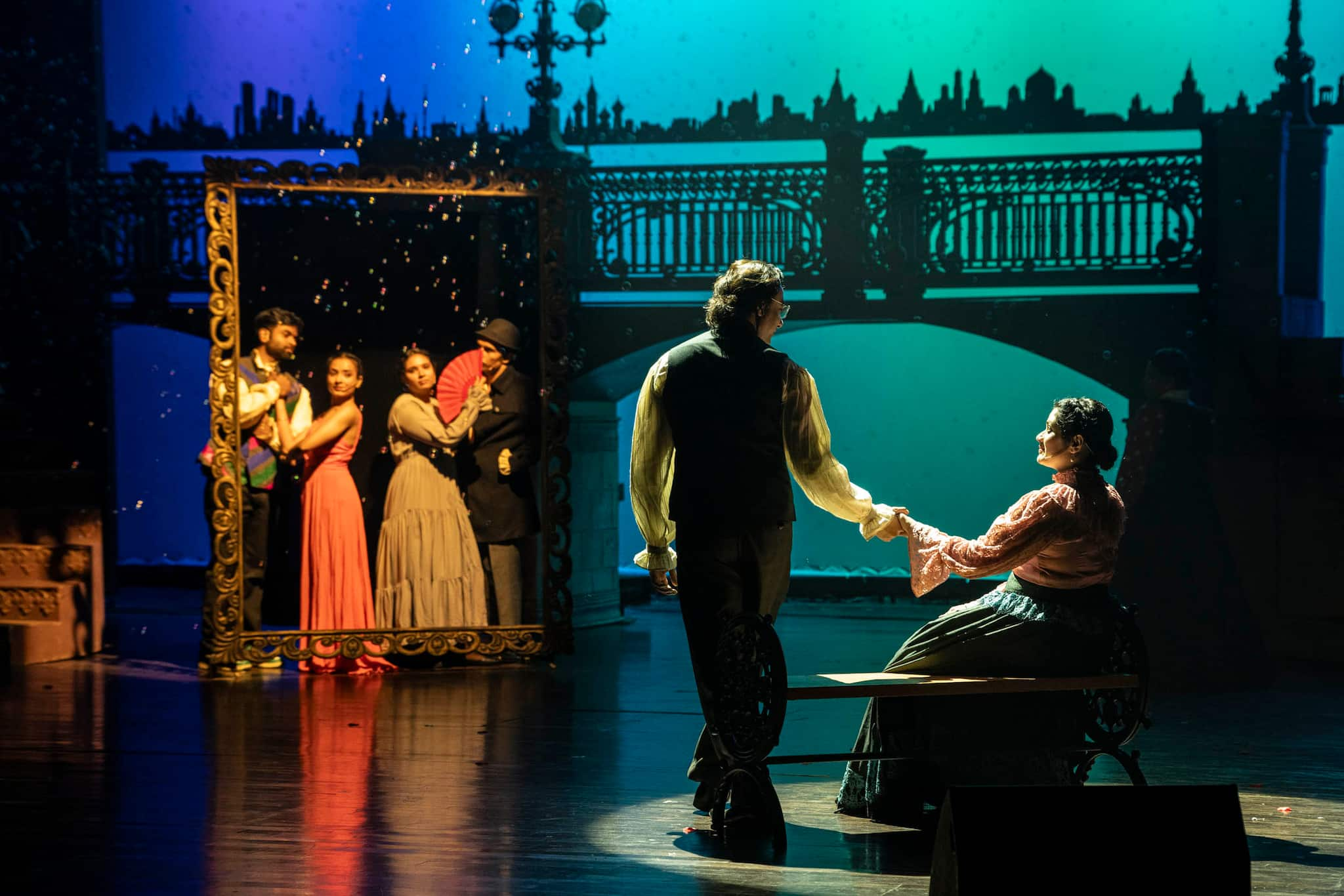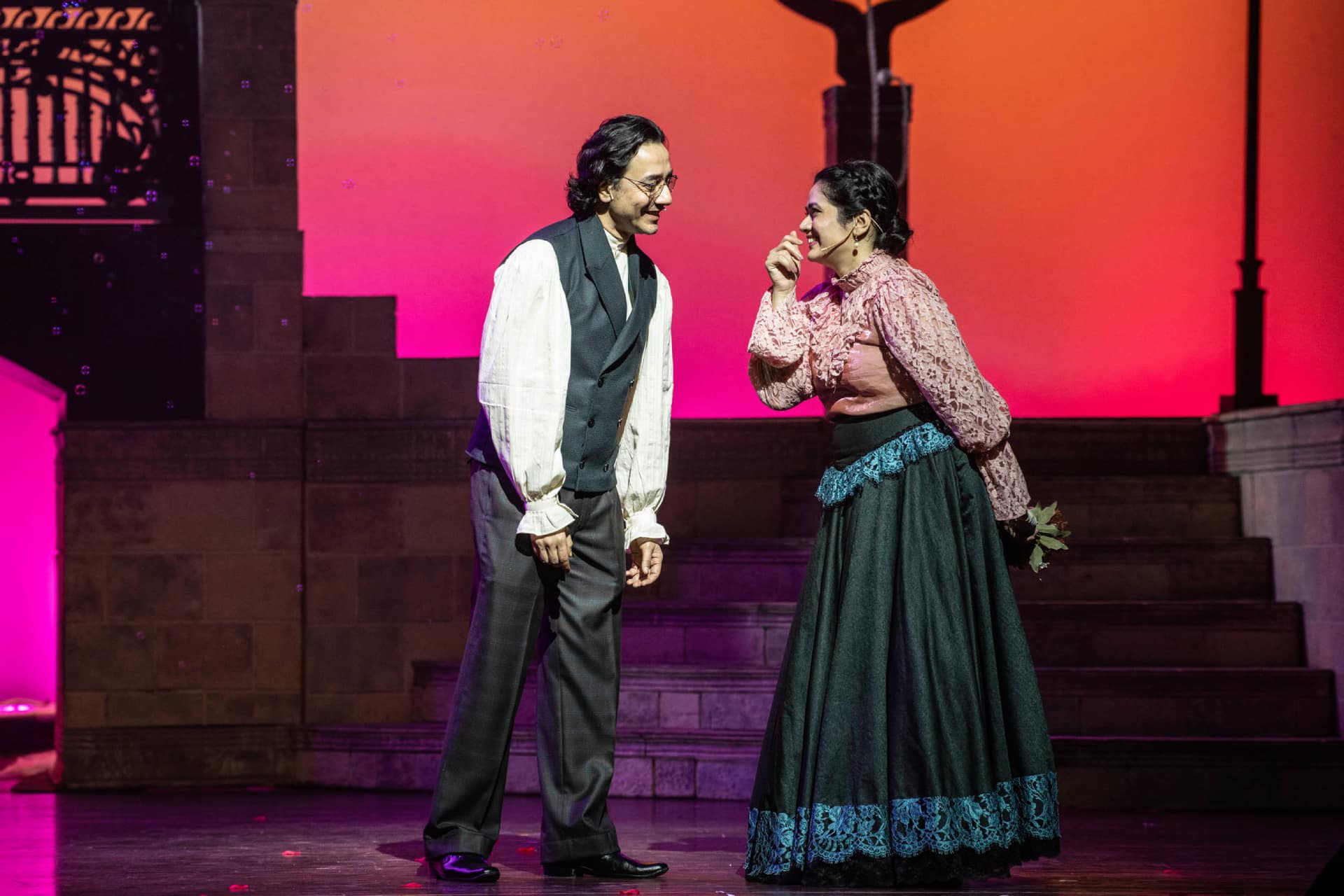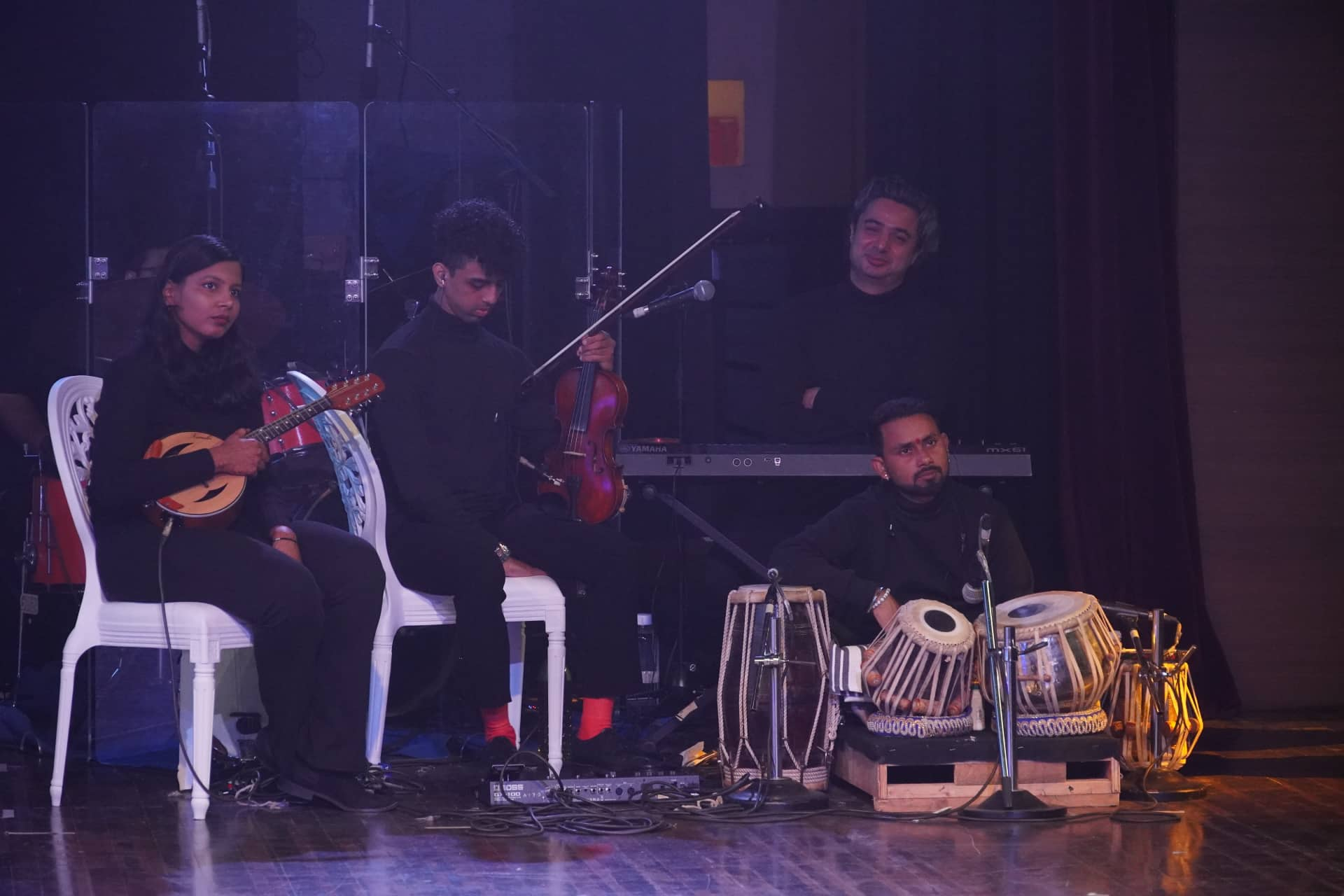



Indian actor-director-musician Purva Naresh has adapted Russian writer Fyodor Dostoevsky's novella 'White Nights' for theatre, in her latest play 'Chandni Raatein' (she almost called it 'Rajat Raatein', which translates as silvery nights, but went with a title that could be understood by a wider audience). If you're wondering why she would resurrect a story Dostoyevsky wrote almost 177 years ago in 2025, then consider that she's hardly alone. Over the last few years, as TikTok and, its books community, BookTok pumped out and hyped up recommendations for things to read in a post-COVID world, 'White Nights' rode the swelling tide. The book also inspired some Spotify playlists by Zillennials and Gen Z, and its re-rise was reported in the media in December 2024-January 2025, including in The Guardian.
In hindsight, the book has all the elements of a contemporary hit: At 112 pages, the book packs a lot of young love, nights out in the city, longing and heartbreak, and loneliness in a slim novella. Dostoyevsky first published it in 1848, a year before he was sent to a Siberian labour camp for four years for alleged anti-government activities. As such, 'White Nights' doesn't yet have the sense of despondency and grime that is everywhere in 'Crime and Punishment' (1866) which is also set in St Petersburg. But where the city in 'White Nights' is set beneath "such a bright sky that looking at it you could not help but ask yourself: is it really possible for bad-tempered and capricious people to live under such a sky?" (Penguin Little Black Book version, trans. by Ronald Meyer), the St Petersburg of 'Crime and Punishment' is poor and crumbling under life's hardships and injustices.
 Resurrecting Dostoevsky in Russia and beyond: A promotional poster for Russian director Ivan Pyryev's 1959 'White Nights' adaptation; and a still from Italian director Luchino Visconti's 'Le Notti Bianche' (1957). (Images via Wikimedia Commons)
Resurrecting Dostoevsky in Russia and beyond: A promotional poster for Russian director Ivan Pyryev's 1959 'White Nights' adaptation; and a still from Italian director Luchino Visconti's 'Le Notti Bianche' (1957). (Images via Wikimedia Commons)Though going on 177 years, 'White Nights' has intermittently been adapted for film many times, too. In 1957, Italian director Luchino Visconti adapted the story and set it in Livorno, Tuscany, in 'Le Notti Bianche'. In 1959, Ivan Pyryev, who won six Stalin Prizes!, adapted the book for a Russian movie. Raj Kapoor starrer 'Chhalia' (1960) is also loosely based on 'White Nights'. In 1992, Russian director Leonid Kvinikhidze changed the timeline in his adaptation, bringing the action to post-Soviet, 1990s Russia. There have been other adaptations of the book, titled Belye Nochi in the original Russian, including Sanjay Leela Bhansali and Bollywood's 'Saawariya' as recently as 2007 and a 2008 Hollywood adaptation starring Joaquin Phoenix and Gwyneth Paltrow ('Two Lovers').
That a new generation of content consumers (film, books, series, theatre are all content, of course) should discover the novella and find in it resonances to their own desires and experiences in the 2020s was, therefore, not entirely unexpected.
Indian theatre director Naresh remembers seeing Luchino Visconti's 'Le Notti Bianche' adaptation during her first semester at the Film Institute of India (FTII), and being moved by it in the 1990s. But that was not the reason why she adapted the book for a play of her own.
Naresh had not seen The Guardian article about 'White Nights' becoming a "social media sensation" or the Spotify playlists with songs by Radiohead, The Smiths, Ludwig van Beethoven, among others, so that wasn't the inspiration either - though music is central to Naresh's adaptation, and one of the key criteria while casting was to pick actors who could sing and "evoke musicality". Nor was a 2021 stage adaptation starring Brian Ferguson ('The Ipcress File') Naresh's inspiration.
Two factors coalesced to bring 'Chandani Raatein' into being. One: during a trip to St Petersburg about two years ago, she was deeply moved by the Russian city that is so different from Moscow. It wasn't easy, and it required seeking a fair few favours, but she managed to acquire a Hindi translation of 'White Nights'. "It was a poor digital copy, a PDF," Naresh explains over the phone days before the play is set to open in Delhi for the 2025 Aadyam Theatre Festival on March 1 and 2. Naresh is from Lucknow and has written original scripts in Hindi before, but this book inspired her to do an adaptation for only the second or third time in her career as a playwright/screen writer-director-actor.
The second thing: Naresh has a long history of presenting work at the Aadyam Theatre Festival - including 'Bandish 20-20000 Hz' in 2021, about Indian singers and singing traditions. And when the organizers at Aadyam reached out to ask if she had a play to present this year, 'White Nights' was already on her mind.
 Chandni Raatein is a Hindi play set in St Petersburg. (Image via Aadyam Theatre)
Chandni Raatein is a Hindi play set in St Petersburg. (Image via Aadyam Theatre)This year, Russia was the invited guest of honour at the New Delhi World Book Fair. But of course Russian literature has never really fallen out of favour in India. Volumes by Dostoevsky, Ivan Turgenev, Maxim Gorky, Anton Chekov and Leo Tolstoy continued to be printed and read in multiple Indian languages.
Having said that, Naresh's adaptation attempts a fusion of sorts. For example, the characters speak Hindi but the action is set in St Petersburg. The live music has elements of nautanki as well as Russian folk.
In a phone interview, Naresh spoke about her approach to retelling this story. Edited excerpts:
Tell us about the 'White Nights' themes you wanted to explore in your retelling of the story as 'Chandni Raatein'.It's a story of a boy who falls in love with a girl across four nights... While I was aware of the loneliness angle (in the story, the protagonist describes the buildings as his friends and familiar faces among passersby as ones he looks out for on his nightly walks through the city), I also saw it as alienation from society.
Most people will have read this book in their 20s. I also saw the (Luchino Visconti) film in my 20s. Today, 20 years later, when I look back, loneliness is not the only thing. I am also battling a certain alienation from many things in society and what's going on around me... I don't feel lonely, but I feel disconnected, I feel I don't sometimes belong to this world... because of COVID also.
So, I translated the loneliness as alienation. One option was going into the mental health conversation which stems from loneliness. But my reading of it was more socio-political, what are those reasons why the protagonist is feeling alienated from society?
When I saw the film in my 20s in film school at FTII, I don't remember registering any of those things in the film even though I loved it. I don't remember walking away thinking this protagonist is lonely or alienated.
Even the other versions we have seen... though, Bresson's film (Robert Bresson's 1971 film, Four Nights of a Dreamer) does touch upon the alienated artist who feels disconnected with the real world, the artistic angst...
In my version I wanted to focus on alienation because I have already felt it intimately. I also chose to do right now because of very romantic, nostalgic reasons of it being one of the first films that hit me like a ton of bricks when I saw it at FTII.
 Chandni Raatein. (Image: Aadyam Theatre)Nostalgic how?
Chandni Raatein. (Image: Aadyam Theatre)Nostalgic how?It being Soviet literature, which I remember growing up on. Also, after 1991 - I would have been in 11th or 12th (standard) then - a lot of things changed for us. A lot of new things came into our lives post-liberalization, but slowly we lost, you know, things vanished. Like Soviet book fairs vanished. I grew up on a very healthy diet of Raj Kapoor and Guru Dutt's cinema - those types of protagonists vanished. Those kinds of social values also started vanishing and the angry young man appeared on the stream of our conscience.
When I chose 'White Nights', (I also had in mind that) we see a lot of Shakespeare. Even in the theatre over here, we see and read lot of Shakespeare. But other than Delhi and the National School of Drama who have done a lot of work with writers of the erstwhile Soviet writers (there isn't as much focus on Soviet or Russian writers as British writers). Of late, yes, I have seen some people pick them up - like The Cherry Orchard (a play by Anton Chekov).
So, it was a tribute to that childhood and the shift in 1991 that marked my teen years or my college years.
I also wanted to see if this gentle guy who met a girl and fell in love with her, will stand any chance when the angry young man - the Rannvijays (Ranbir Kapoor) of 'Animal', the Kabir Singhs - has become so accessible and so romanticized... Today, plot drives the story... Soviet literature in my opinion, is long monologues and not much happens, but the creators focus on why it happens. I find it impossible to pitch any story - doesn't matter what platform: theatre, OTT - without any plot or without much plot today. Character is nice, but you need plot, a lot of plot. So where do these stories go?
 Chandni Raatein will have a live band. (Image: Aadyam Theatre)You've used Indian music prominently in past productions. 'Bandish 20-20,000 Hz' is an obvious example. What kind of music can viewers expect in 'Chandani Raatein'?
Chandni Raatein will have a live band. (Image: Aadyam Theatre)You've used Indian music prominently in past productions. 'Bandish 20-20,000 Hz' is an obvious example. What kind of music can viewers expect in 'Chandani Raatein'?As a storyteller, I've realized worlds are very important to me and worlds are built by characters. Plot is secondary - I mean I like it, but characters and worlds (building) are my drivers. (For the play) I wanted to recapture that trip to St Petersburg and the skyline... And because the play is set in St Petersburg, I felt I needed to add different types of arrangement and instrumentation than the tabla, dholak and harmonium, but I also did not want to let go of the folk music and classical bandishes I like to work with. So we arrived at a kind of fusion. I invited Kaizad Ghera and we jammed and figured out a sound for the piece... I am using nautunki, I am using a folk song, I am using a classical thumri - but I just felt that it would not feel odd because it is used for an emotional situation, and an emotional stretching of the moment rather than a hardcore logical adaptation.
Discover the latest Business News, Sensex, and Nifty updates. Obtain Personal Finance insights, tax queries, and expert opinions on Moneycontrol or download the Moneycontrol App to stay updated!
Find the best of Al News in one place, specially curated for you every weekend.
Stay on top of the latest tech trends and biggest startup news.